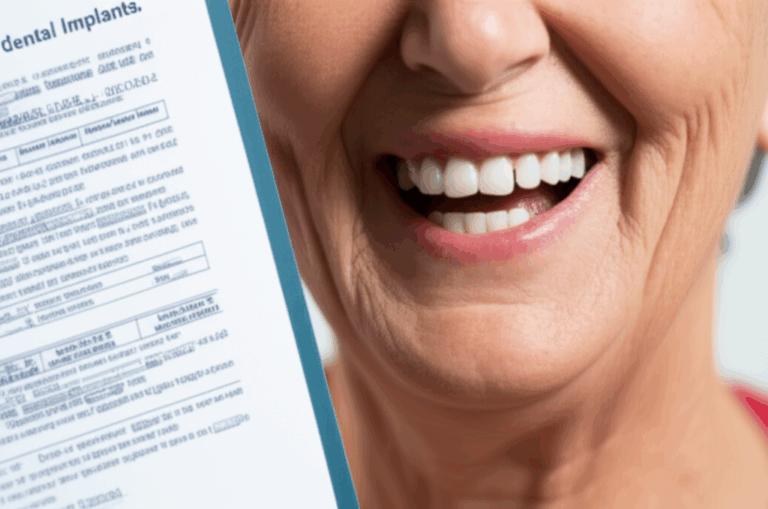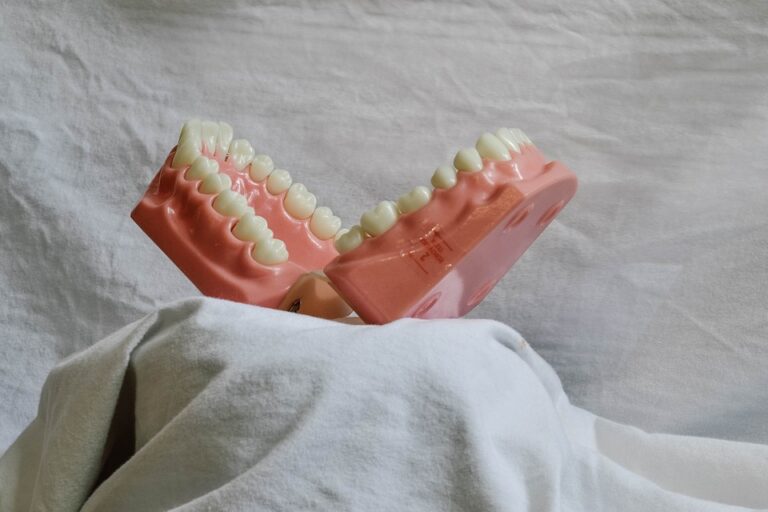
Does Iowa Medicaid Cover Dental Implants? My Personal Guide to Coverage, Costs, and Realistic Options
Table of Contents
- Dentures and Partial Dentures
- Fixed Dental Bridges
- Finding Low-Cost Care and Denture Programs
- Dental Financing Options
- Using the Provider Search Tool
- Contacting Managed Care Organizations (MCOs)
- Questions to Ask Your Dental Office
Article Outline Overview
In this article, I’ll share what I’ve learned from my own experience about Iowa Medicaid and how it works with dental implants. Here’s what I’ll talk about:
- A clear answer to the main question about coverage.
- What dental services you get with Iowa Medicaid if you’re an adult.
- What it means when something is called “medically necessary” and when implants are not considered a must-have.
- How to ask for approval for implants, and how the appeals work.
- What Hawki covers for kids and dental help.
- How much dental implants cost in Iowa if you’re paying yourself.
- Cheaper ways to replace teeth if Medicaid won’t cover what you want.
- How to find a dentist that will take your Medicaid.
- The main points—and questions I get all the time, with answers.
If you want all the info, or just need to know your next step, you’ll find what you’re looking for here.
The Quick Answer: Does Iowa Medicaid Cover Dental Implants?
Let’s keep it simple: Iowa Medicaid almost never pays for dental implants for adults. I was hoping they would pay for mine after losing teeth, and it was a huge letdown to hear no. Really, unless you have a pretty special case, Medicaid in Iowa only helps with the basics: check-ups, cleanings, fillings, and dentures. Maybe in very rare cases, you could get implants paid for. But not most of us.
So, if you’re crossing your fingers for implants, I’ll show you who might be able to get them (it’s rare!) and what hoops you’d have to jump through. For just about everyone, though, Medicaid and implants together is a “no.”
Iowa Medicaid Dental Benefits for Adults: What’s Covered?
Iowa Medicaid gives you some decent dental coverage as an adult, especially for the basics. Here’s what I’ve learned.
Standard Covered Dental Services
When I got Iowa Medicaid, I was pretty glad to find out these things are covered:
- Regular check-ups and cleanings: So they can find problems early.
- X-rays: Especially if you have a toothache or something seems off.
- Cavity fillings: They’ll fill holes in your teeth, usual both tooth-colored and silver ones.
- Simple and some tough tooth removals: They’ll pull it out if it hurts.
- Full and partial dentures: You can get these, but generally only a new set every so many years.
There are some limits, though. Things like root canals aren’t always covered on every tooth, and rules for getting new dentures can be strict—you might only get them every five-to-eight years unless there’s a really good reason.
Understanding “Medically Necessary” vs. “Cosmetic”
This part gets a little tricky. Iowa Medicaid draws a clear line between what you need for your health and what is done just to look better.
When I started learning about Medicaid, “medically necessary” meant that a treatment is needed to keep you healthy or be able to eat and talk right, not just for looks. For Medicaid, dental implants are mostly just for appearance—unless you have some very big dental problems that can’t be fixed with dentures.
For example, if you lost teeth because of a big accident and you can’t use dentures for some reason, like a birth problem or your jaw just won’t let them fit, your dentist might try to get you implants. But don’t count on it. You need to have a lot of proof, and they almost always say no.
The Role of Prior Authorization for Dental Implants
You might ask—if it’s this tough, is there any way around it? I looked into it a lot, and here’s what I found.
When Might Prior Authorization Be Considered?
Getting “prior authorization” is like your dentist asking Medicaid for permission before you get the treatment. Your dentist sends in a bunch of paperwork saying why you must have implants and why dentures or bridges won’t work for you.
But this doesn’t happen often. Most dentists I’ve talked to say it’s a long shot. It might be considered if:
- You have a big physical problem—like you were born with something wrong or had a bad accident—and dentures won’t work.
- You’ve tried other options and nothing worked, and you have real, constant pain or trouble eating.
Think of this as your one big try when nothing else is possible.
The Prior Authorization and Appeal Process
If you and your dentist really think you qualify, here’s how it usually goes:
There’s no promise you’ll win, and lots of people spend months on this and still hear no. But if your case is special, it can be worth a try.
Hawki Program (Children’s Medicaid) and Dental Implants
Sometimes parents ask me: “Is it easier for my kid to get implants with Medicaid?” I’ve talked to families about this, too.
Hawki, which is Iowa’s CHIP for kids, does offer more dental care than adult Medicaid. Things like:
- Regular check-ups and basic fixes are covered.
- Big procedures like crowns, some braces, and serious mouth surgeries can be covered if the child can’t eat, talk, or grow right without them.
For implants, though, approvals are super-uncommon, even for kids. Most of the time, these only get paid for if a child has a big accident or a birth problem, with lots of notes from doctors saying they’re needed. Almost always, less expensive fixes are chosen first.
Cost of Dental Implants in Iowa & What to Expect Without Medicaid
What if you hear “no” from Medicaid? That was me, so here’s what I’ve learned.
Average Costs for a Single Implant
In Iowa, dental implants are not cheap. For just one implant, expect to pay:
- $3,000 to $6,000 for one tooth.
That usually includes putting in the metal post, then the connector, and then the tooth part you see.
Costs can change, but this is pretty normal. Remember, insurance or Medicaid hardly ever helps with this.
What Affects the Cost?
I learned that prices go up depending on:
- How many teeth you want to fix: More teeth, more money.
- Pre-work needed: You might need extra bone put in first ($200-$3,000 each time), sinus lifts, or teeth pulled.
- Where you go and who does it: Bigger cities or fancy tooth doctors can cost more, but they may do better work.
More steps mean more money.
Full-Mouth Implant Options
If you want to get all your teeth replaced with implants, options like “All-on-4” are around. They’re really nice, but get ready for a big bill:
- $20,000 to $50,000 (or more) for just the top or bottom.
Most people can’t pay this unless they get lucky with money or help somewhere else.
Affordable Alternatives to Dental Implants in Iowa
Since I learned implants weren’t for me, I looked hard for what Medicaid would pay for, and what other real choices I had. Lots of people do this, too.
Dentures and Partial Dentures
Dentures are what most people on Medicaid get.
- Full dentures replace all your upper or lower teeth.
- Partial dentures fill in gaps if you still have some good teeth.
Iowa Medicaid pays for these most of the time, normally without much cost to you. They’re not implants, but if you get a good fit and a good dentist, they help you eat, smile, and feel better.
Worried about how they feel or eating tougher food? Today’s dentures are way better than old ones.
If you’re curious how dentures are made, you might want to read a little about what goes on in a removable denture lab—it might help you see what’s possible now.
Fixed Dental Bridges
Another choice is a dental bridge. Sometimes Medicaid pays for this if your dentist can show you need it to chew right, but not always.
A bridge attaches to your other teeth (sometimes implants, but most people don’t have them) and goes over the gap. They can last a long time, but check with your dentist to see if Medicaid will help out.
Finding Low-Cost Care and Denture Programs
If money is tight, here are things I tried:
- Community Health Centers: These give dental care and make you pay what you can. Great for folks with less money.
- Dental schools: The University of Iowa has a dental school where students (with teachers watching) will work on your teeth for less money. It takes longer but saves a lot.
- Charity clinics: Some areas have clinics that help adults with low income.
- Free days: Keep your eyes open for free dental days or health fairs.
Sometimes there are waiting lists, but if you try enough places, you’ll often get in.
Dental Financing Options
If you don’t get help and you can’t pay all at once, there are options like CareCredit. This is a healthcare credit card that sometimes has no interest for a while.
A lot of dentist offices, especially the bigger ones, let you make payments over time. Ask about this right away. Some will also give you a lower price if you pay all at once.
How to Find an Iowa Dentist Who Accepts Medicaid
When I first needed help, I found out fast that just because a dentist says “Medicaid accepted” doesn’t mean everything is covered. Here’s how I did it.
Using the Provider Search Tool
Iowa Medicaid has an online lookup tool. You can search by your city, dentist type, and see who takes Iowa Medicaid.
I always call the office first before I set up a visit. Sometimes they aren’t taking new Medicaid patients right then.
Contacting Managed Care Organizations (MCOs)
In Iowa, dental care comes through companies like DentaQuest or MCNA Dental.
Each one has its own list of dentists—call the number on your Medicaid card to see who takes your plan.
- Ask who takes Iowa Medicaid and is taking new people.
- Double-check what treatments (like dentures or bridges) you can get.
Questions to Ask Your Dental Office
Here’s what I ask every time I call:
- Are you taking new Medicaid patients?
- Do you do dentures (or whatever I need) with Medicaid?
- Will you help fill out paperwork if I want to try for a rare treatment?
- What could I have to pay myself?
Doing this saves a lot of time and trouble and helps you find a kind dentist.
Key Takeaways: Dental Implants and Iowa Medicaid
Here’s what my experience taught me:
- Iowa Medicaid almost never pays for dental implants for adults.
- Dentures, and sometimes bridges, are the main things they do pay for.
- Getting approval for implants is possible but super rare and only with lots of medical proof.
- Hawki for kids includes lots of care, but still almost never implants.
- Most adults have to pay full price for implants, which is just too much for most people.
- You can still get help with dentures and other tooth fixes if you know where to ask and try different places.
- When you don’t know, call your Medicaid company directly. Rules can change, and sometimes dental benefits increase.
If you want more ideas on keeping your mouth healthy, even with dentures or bridges, check out some easy dental care tips that help at every age.
Frequently Asked Questions (FAQs)
Q: Does Iowa Medicaid cover cosmetic dental work?
No, it doesn’t cover things just done to look good—like whitening, veneers, or implants just for looks. They pay for things to keep your teeth working and healthy.
Q: How often does Iowa Medicaid cover dentures?
Usually, you can get new dentures every 5-8 years, or sooner if your old set is broken and can’t be fixed for a medical reason.
Q: What if I have a dental emergency in Iowa on Medicaid?
If it’s an emergency, like a bad toothache or big infection, Medicaid should pay for basics like pulling a tooth. Go to a dentist who takes Medicaid or urgent care and take your card.
Q: Can I get partial dentures with Iowa Medicaid?
Yes! If you’re missing some teeth and still have some good ones, Medicaid usually covers partial dentures.
Q: Are there any dental grants for implants in Iowa for low-income individuals?
I couldn’t find Iowa-run grants, but some local charities or free dental events might help if you really need it. Try asking at community clinics, dental schools, or non-profit groups.
The bottom line? If you’re like me—missing teeth, have Medicaid, and wish for implants—just know there are options, even if they’re not what you wanted first. Iowa Medicaid makes it hard to get implants, but there are still ways to get your smile back. Stay strong, keep asking questions, and try every path you can. Good luck!








